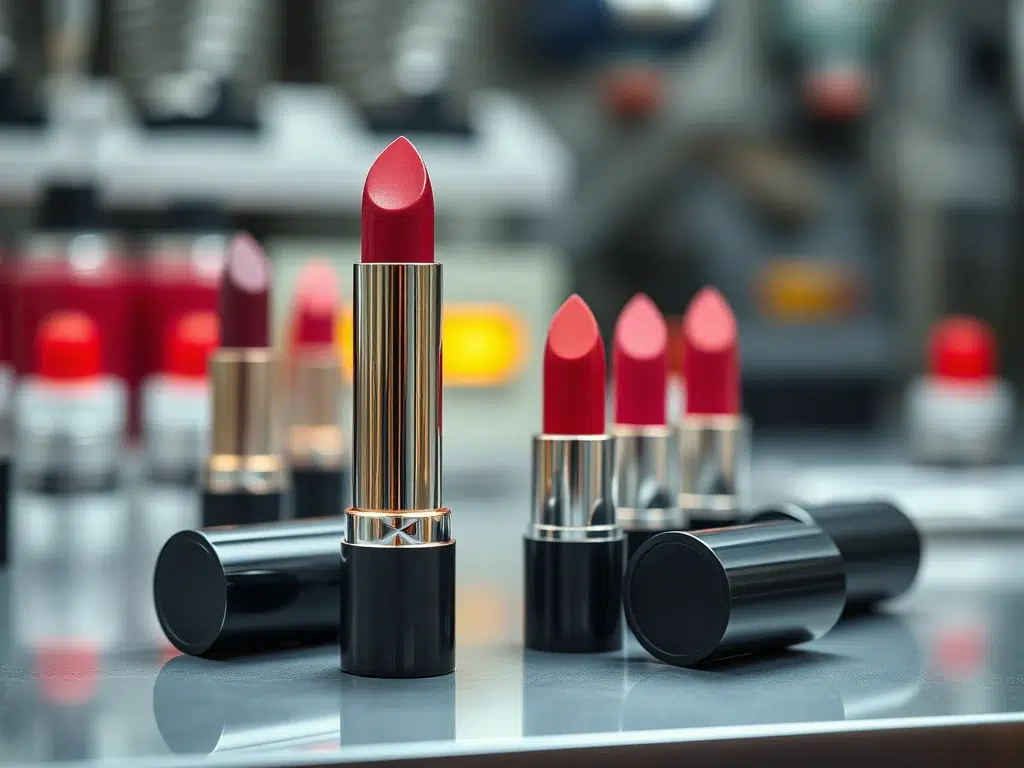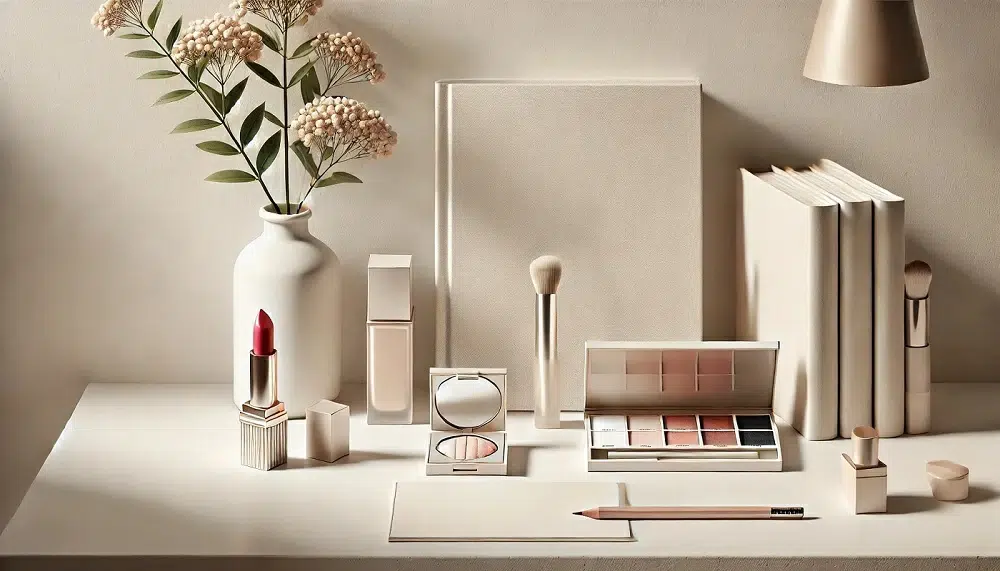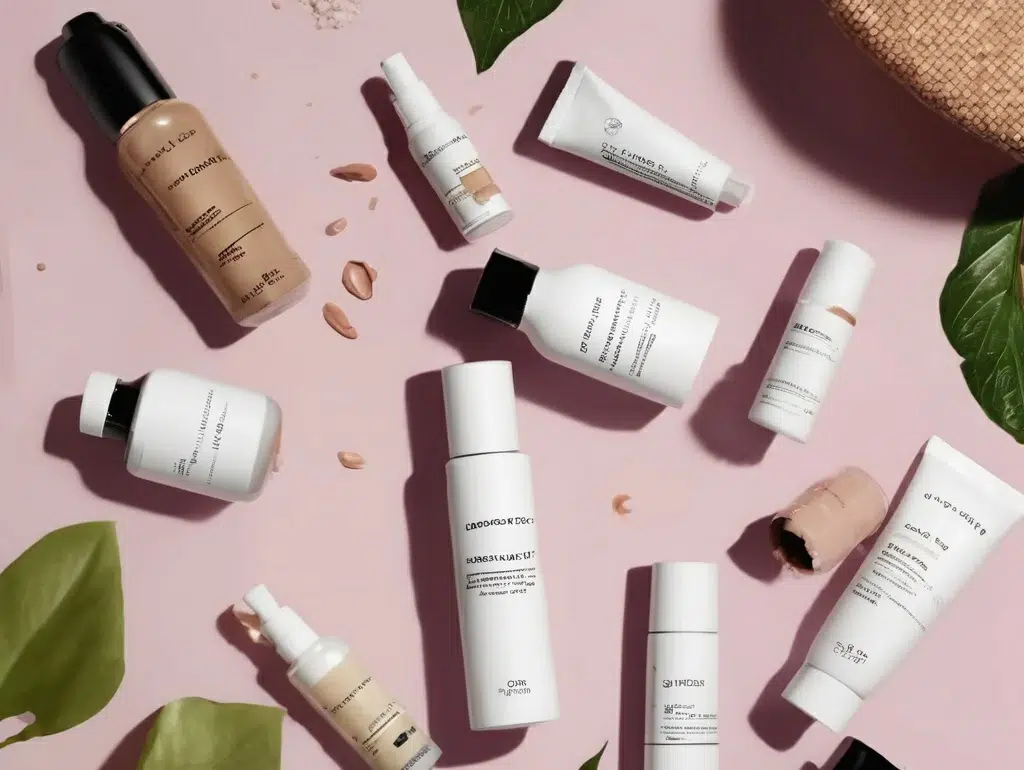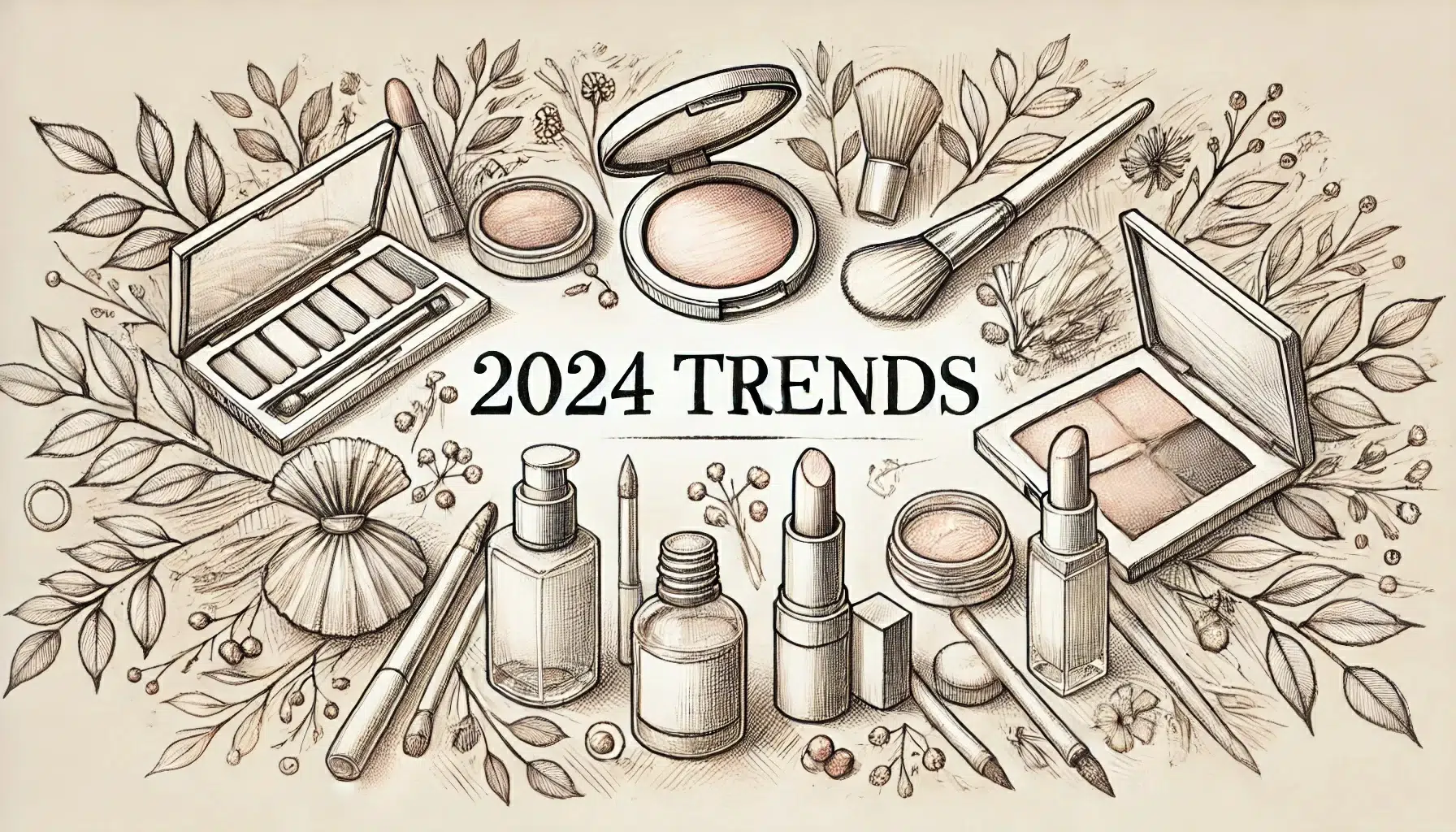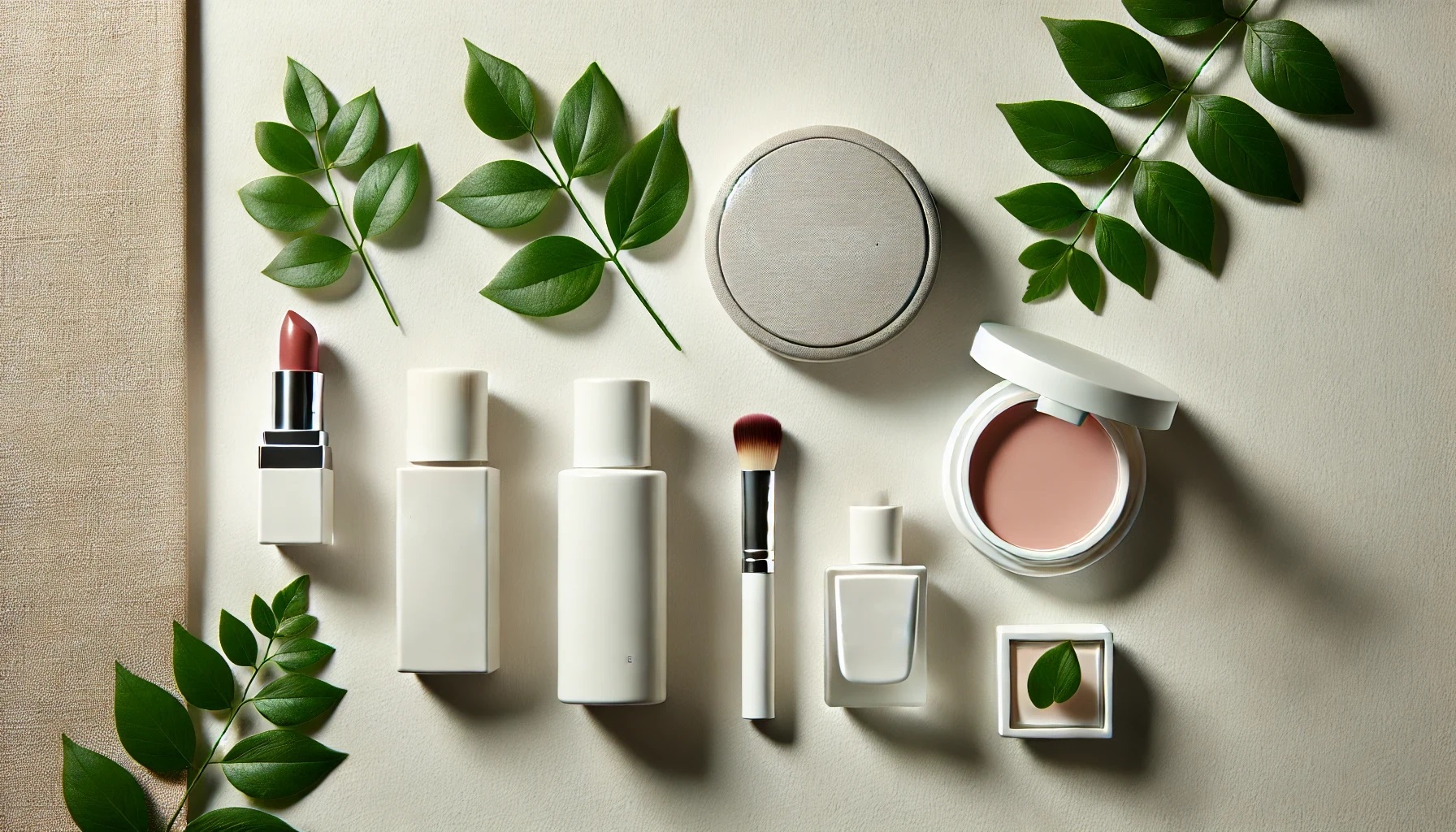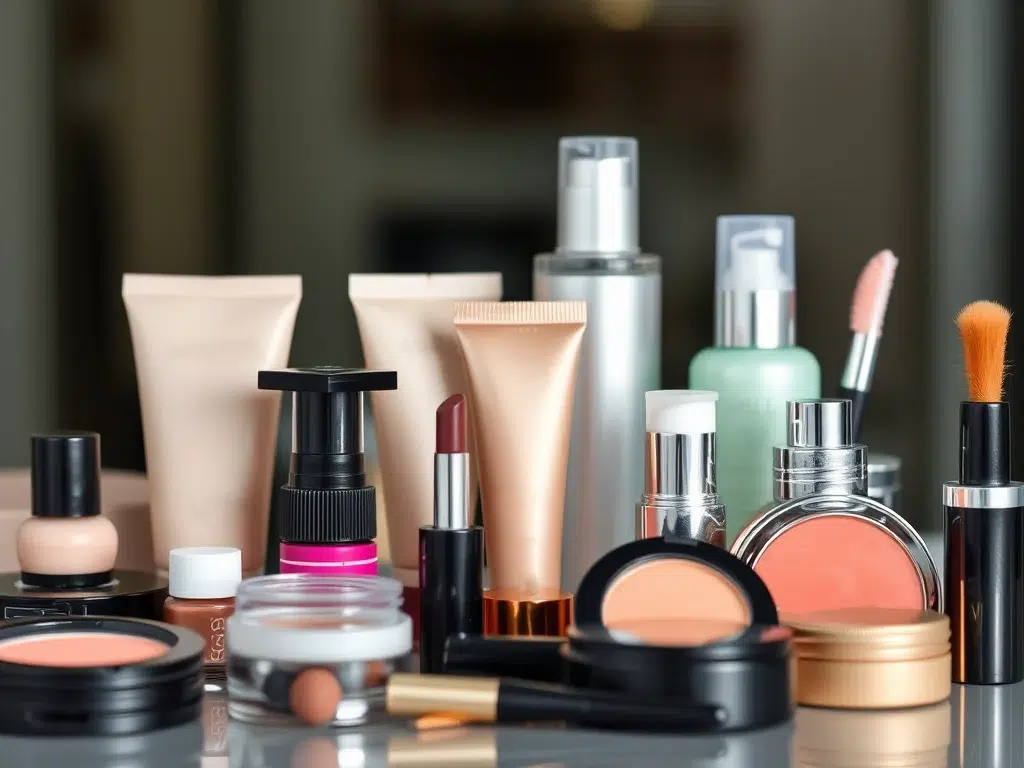
Vegan Cosmetics and Animal Ingredients in Makeup: Which Is Better?
Share This Article With
Some argue that vegan cosmetics are better because they don’t contain animal products. And they’re not tested on animals. Others argue that traditional cosmetics are better because they have been tested on animals and are, therefore, more likely to be effective. Let’s take a closer look at the use of the ingredients in makeup and cosmetics and which option might be better.
Table of Contents
The past several years have witnessed the growth of vegan cosmetics uptake. This is not to say that it was an easy feat. The cosmetics market could expand at 6.3% yearly between 2022 and 2030.
A lot of debate surrounds vegan products and whether they are better for you than traditional cosmetics that contain animal elements. Some argue that these cosmetics are better because they don’t contain animal products. And they’re not tested on animals. Ultimately, the decision of which type of cosmetics to use is a personal one.
What Are Vegan Cosmetics?
Vegan makeup products are those that don’t contain any animal substances or by-products. Here comes some confusion: It’s possible to test vegan products on an animal and have cruelty free products that include animal ingredients. The absence of Food and Drug Administration regulations adds to this confusion.
Thus, a company can create logos to indicate if a beauty product is cruelty free or vegan. The most notable is Peta’s beauty company. It certifies companies whose products haven’t undergone animal experimentation at any stage of the manufacturing process.
Various cosmetic companies offer vegan and animal products, including makeup, skincare, hair care, and fragrance. The best vegan makeup brands offer options, and many small, independent brands specialize in vegan makeup products.
This includes things like honey, beeswax, lanolin, and collagen. These cosmetics are also free from carmine, a red pigment made from crushed insects.
Popular Vegan Makeup Ingredients
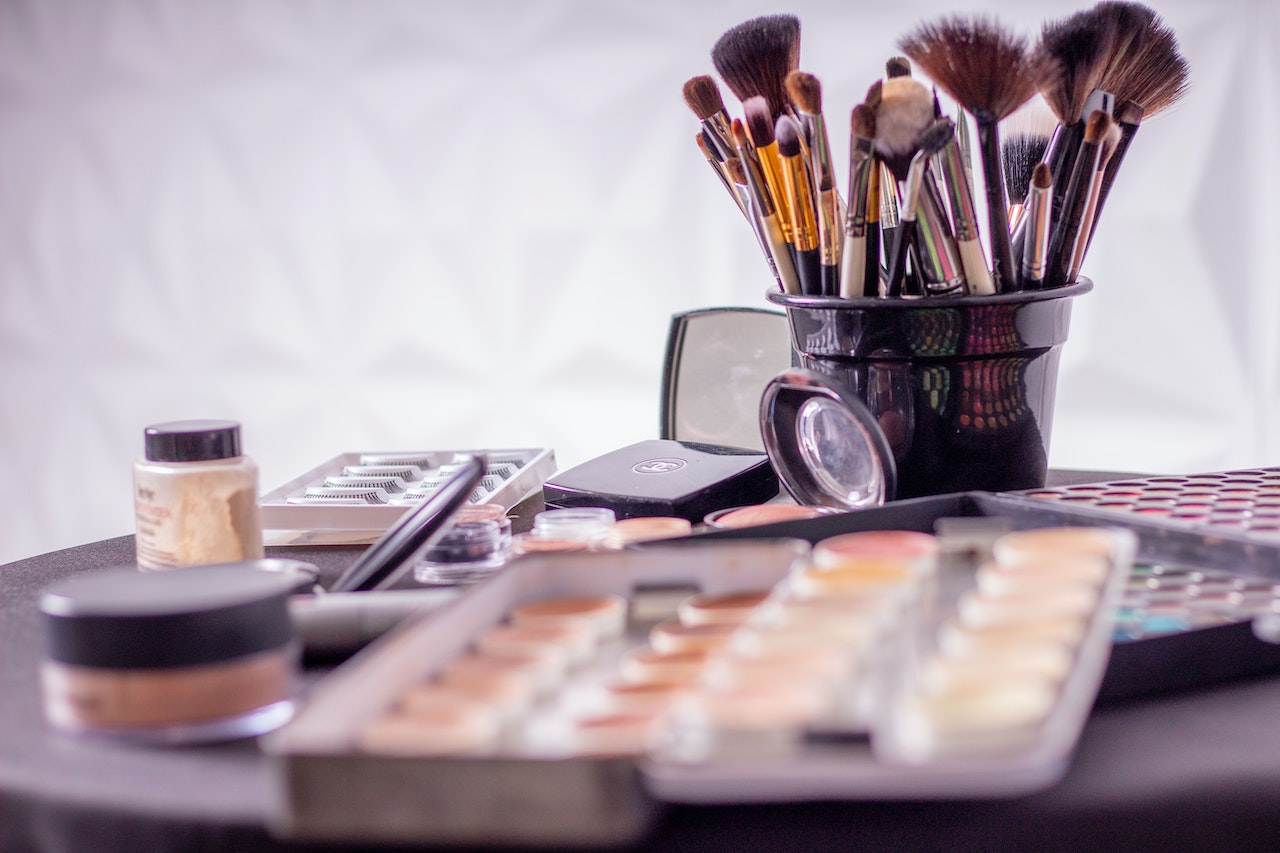
Here are some ingredients you might come across in makeup:
Vitamin C/ Collagen
Our bodies produce collagen as a structural framework for tissues. But, its production diminishes as we age. So the only option is to seek supplements. However, collagen is always a product of animals.
In the absence of a vegan option, there are a few nutrients that will help your collagen production. Vitamin C increases collagen formation when stable, more accessible as ascorbyl glycoside, and combines with antioxidants. It is all about forcing your body to work harder.
Retinol
Retinol is a water-soluble component in animals in the form of Vitamin A from fish oil. Plants cannot produce identical chemistry. But bakuchiol, from Psoralea corylifolia, offers comparable properties. And this aid in the softening of wrinkles and fine lines and improves firmness, elasticity, and skin tones.
The strength of retinol lies in renewing skin without exfoliating it and smoothing it by substituting dull, lifeless cells with new ones. While you will find retinol in anti-aging treatments, it is also an effective tool to fight acne.
It can prevent future outbreaks, unclog and shrink pores, and even improve your routine’s effectiveness with other pimple-fighting treatments.
Squalane
The market has several vegan ingredients that benefit the skin. And squalene is one of them. Squalane is a substance that doesnt clog your pores and aids in retaining moisture in the skin. Initially, cosmetics enthusiasts could extract shark livers.
Olive, sugarcane, bran, rice, and amaranth oils are its source.
Hyaluronic acid
Beauty companies produce vegan products for all skin types. Hyaluronic acid can fight dry skin and extracts moisture from the air, making it an excellent hydrator.
Originally from a cockerel’s comb, the vegan hyaluronic acid with the same chemical and activity comes from plant fermentation.
Animal Ingredients in Makeup
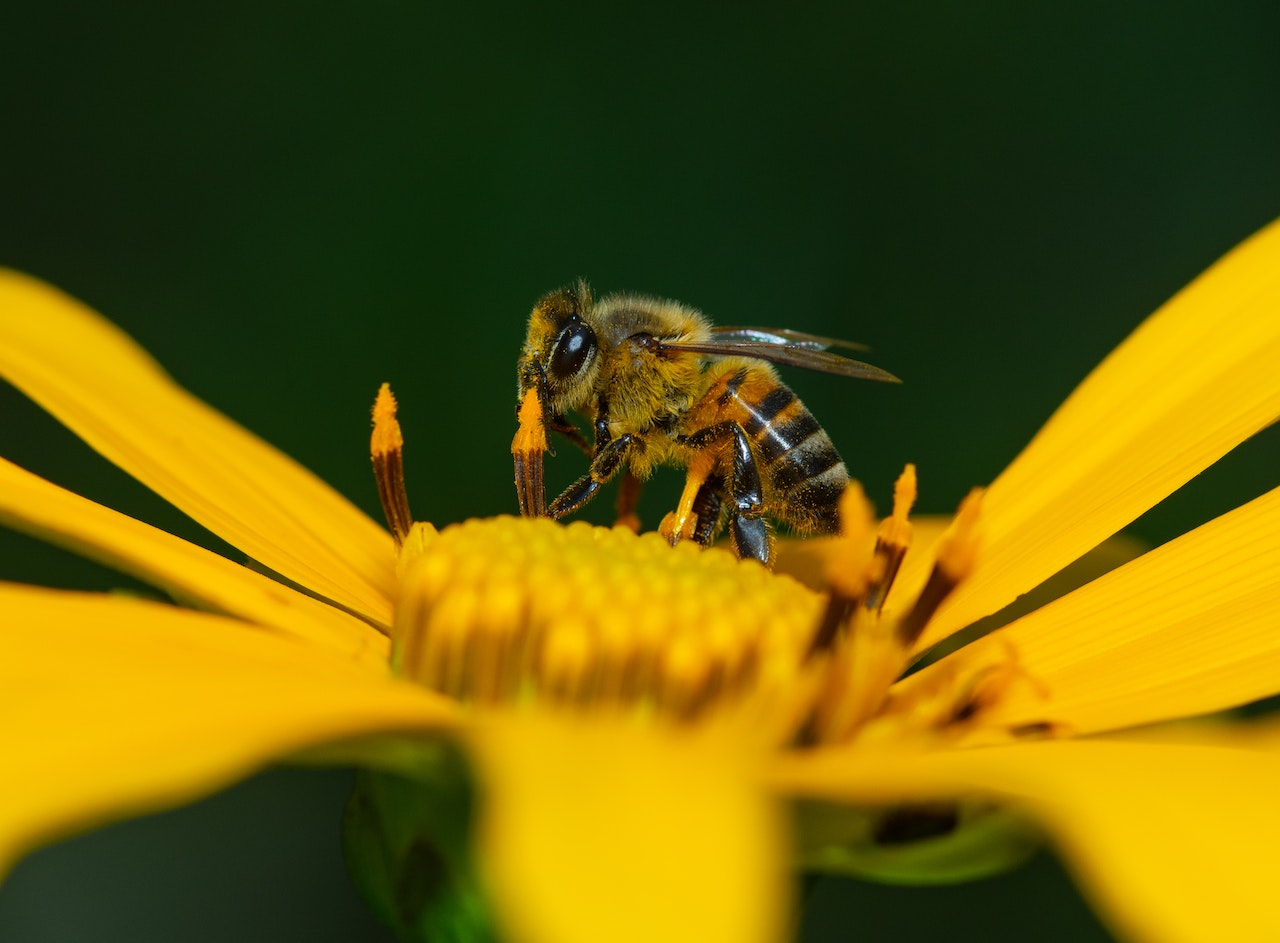
Have you ever given any thought to the animal components in your makeup? If not, you might want to start. Animal extracts are common in cosmetics and personal care products; many are obtainable through inhumane practices.
Keratin
Animal nails, horns, feathers, hooves, and hair gives us keratin. The shampoo, hair treatment, conditioner, and hair treatment in your home probably have keratin.
Tallow
Breaking down sheep, cow, or pig fat produces tallow. You might notice a few extracted and processed fatty acids constitute tallow, such as Oleic Acid, Palmitic Acid, Lauric Acid, Stearic Acid, and Myristic Acid. The majority of these acids are prominent for their intense moisturizing qualities.
Beeswax
Do you know that bees are crucial to human survival? Bees pollinate flowers and contribute to the world’s food security? After the removal of honey from honeycombs, melting the combs produces beeswax. Due to its inexpensive nature, the bee product is common in makeup products, from lip balms to lipstick to eyeshadows and creams.
Sunflower, soy, carnauba, and coconut are options to consider.
Lanolin
Sheep produce lanolin to help maintain the dryness of their wool. The ingredient has a greasy look that makes it ideal for balms, lipsticks, and glosses. Other beauty products that use include the ingredient as a component include emollients. They help moisturize and soften extremely dry skin.
Cruelty free lanolin exists though it originates from wool. Should you want alternatives to lanolin, natural waxes and butter are excellent animal-free options.
Collagen
Your skin’s elasticity is a result of collagen. The substance from animal skin helps deal with aging skin. So, cosmetics manufacturers use it in anti-aging products. Despite its properties, several scientists and beauty professionals claim that collagen doesn’t sink into the skin enough to bring about any visible change.
Guanine
Not only is animal fur highly valuable, but fish scales have their place in the cosmetics business. Companies crush them to make a substance known as guanine. The chemical helps generate a glittery or glittering finish in items such as highlighters, iridescent nail paint, blushers, and bronzers.
Cochineal dye
Do the stunning pink and red hues in your blush or lipstick entice you to purchase? They’re almost certainly descended from the cochineal insect. The female feeds on the red cactus berry, which, when you crush, produces an extremely strong red coloration, carmine.
Concerns About Animal Ingredients in Makeup
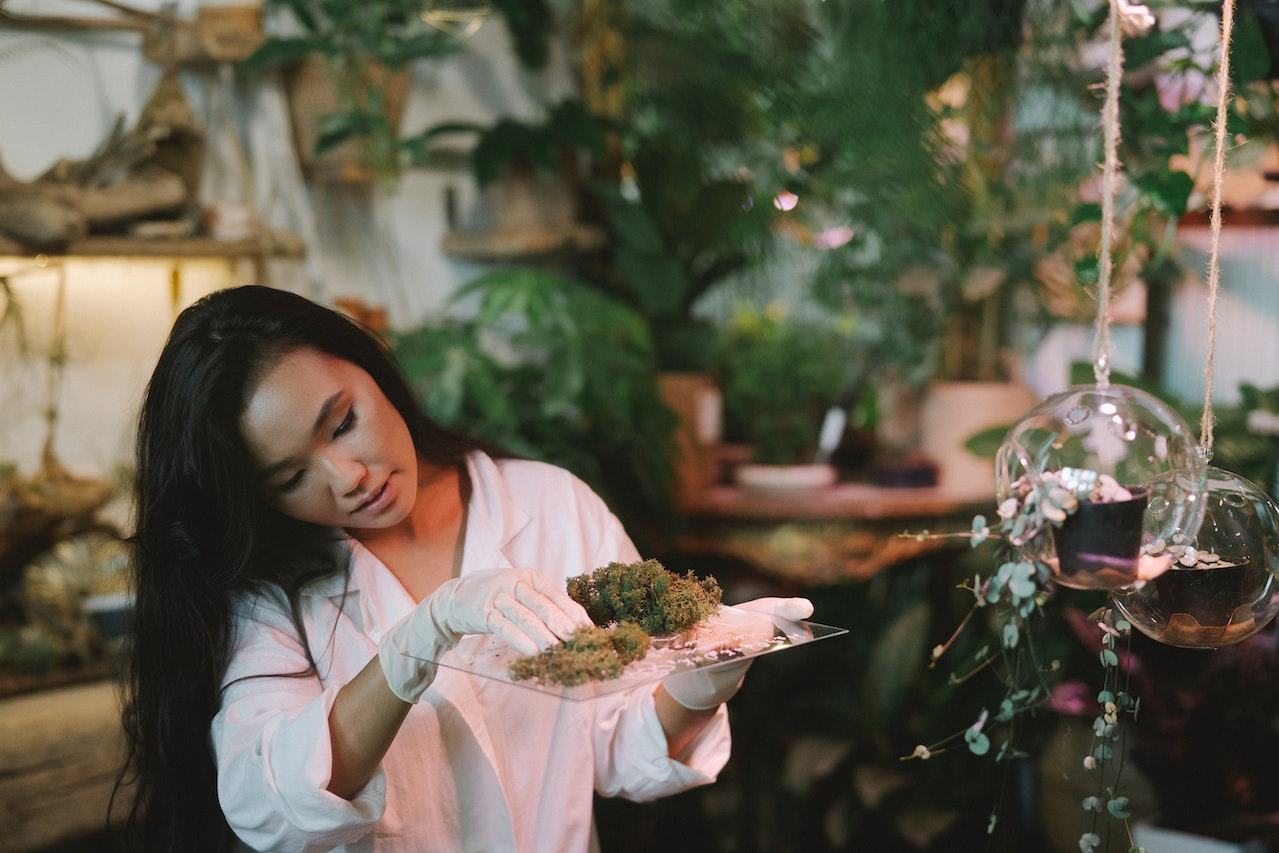
The world has become increasingly aware of diets’ impact on health and the environment. Cosmetics companies, makeup artists, and buyers are paying more attention to the ingredients in cosmetics and personal care products. Thus, many people are looking for options free of animal ingredients and cruelty free.
But, concerns about using animal-derived ingredients in makeup persist. A major concern is that the ingredients may not be safe and could cause irritation or allergic reactions—the ethical implications of using animal products in cosmetics.
Fortunately, several beauty companies are now offering cruelty free brands. These products are usually made with plant-based ingredients and are often just as effective as their animal-based counterparts. So, plenty of great choices are available if you want a cruelty free option.
Why Choose Vegan Makeup?
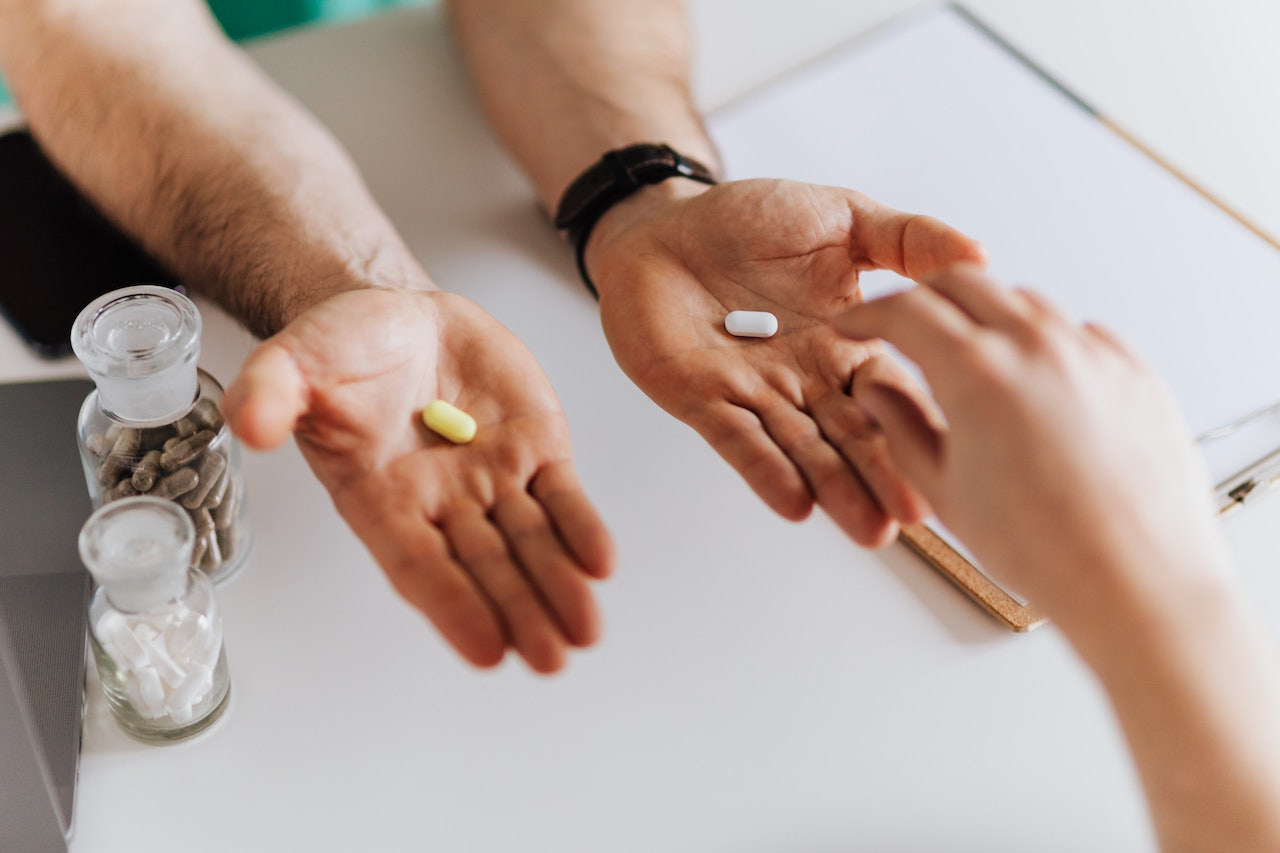
With the call for animal-free items in most beauty ompanies and industries, cosmetics brands are adopting the vegan trend by making cosmetics such as foundation and lashes cruelty free. Check out the following benefits:
Fewer synthetic chemicals
When a product is cruelty free and vegan, it means that the products include non-animal-derived components. And that no one has tested on animals. If you love animals, this will give you peace of mind knowing no animals were injured. And it’s such decisions that help to create a more secure world for animals.
Using makeup can be the key to aligning your beauty routine with your values of kindness and compassion for all living beings.
Works Well for Your Skin
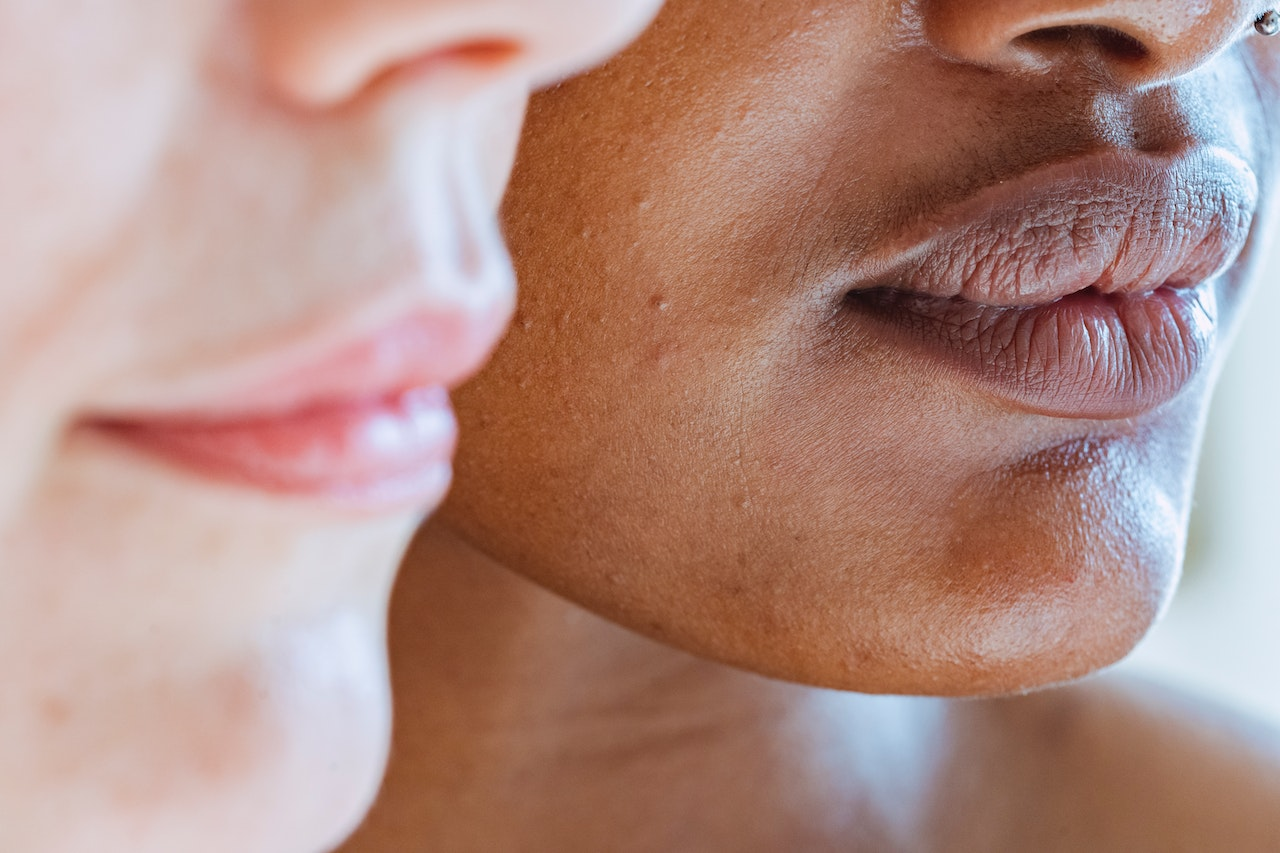
Flawless skin is something that most women yearn to achieve. And this is why many women invest in cosmetics often. Vegan cosmetics are typically full of natural ingredients and free of harsh chemicals like phthalates, parabens, and sulfates.
Vegan makeup is highly saturated and employs plant-based substitutes for animal-derived substances, such as olive squalene, to substitute shark liver squalene. And synthetic pearls instead of guanine in fish scales, and so on. Several ready-made options render the use of non-vegan cosmetics obsolete.
Do you have sensitive skin? Vegan and cruelty free makeup could be what you need.
You’re More Likely to Keep Organic, Vegan Products
The best vegan makeup brands present environmental benefits like all green products. Manufacturers and makeup brands like Aurora Global Brands often use sustainable and eco-friendly packaging, which reduces waste and helps to protect the planet. This may involve using recycled plastics and making the packages recyclable.
The components are already present in nature. Thus, extracting or creating them in labs is unnecessary.
Animal Testing Is Wasteful
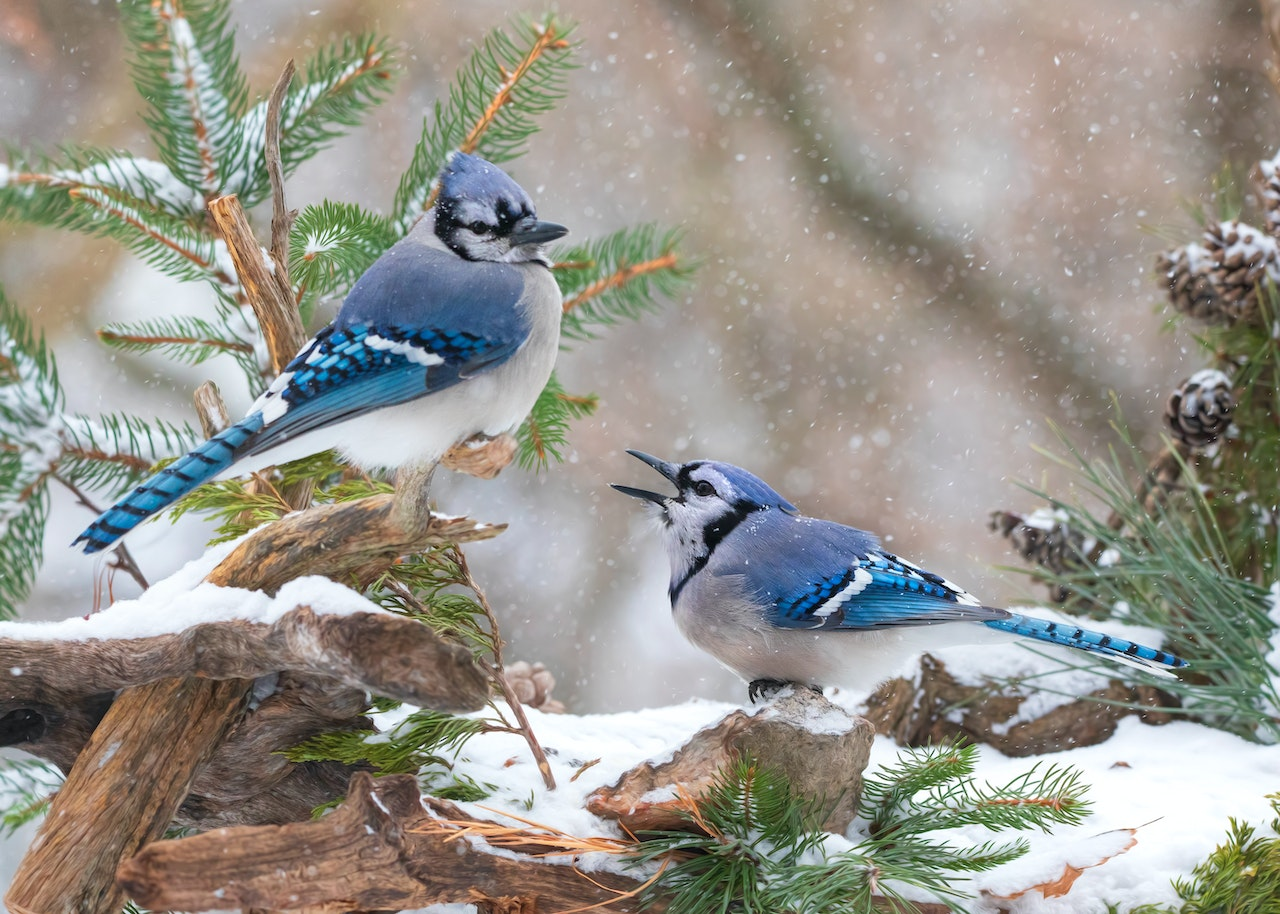
The use of animals for experiments is not only harsh, but it’s also frequently unproductive. Most diseases that affect man do not occur in animals. So, scientists create replicas of these diseases in animals to mimic the diseases.
Such trials, however, minimize the complexities of human situations, which are influenced by a wide range of variables. And this includes socioeconomic, heredity, serious psychological difficulties, and various personal experiences.
Vegan Cosmetics Help Bees
Bees are some of the most important insects in the world. If not sustainably used in cosmetics, their products could endanger their species.
Cosmetics may be beneficial for bees for a variety of reasons. First and foremost, they include no animal-derived components. Additionally, they have natural components that are less prone to damage bees. Finally, many cosmetics firms are devoted to environmentally friendly procedures that save bees and other pollinating insects.
While more study is needed to fully understand the consequences of using neonicotinoid-containing cosmetics, data shows that vegan makeup and skin care products are preferable for individuals who wish to maintain bee health.
Most food crops would not bear fruit if pollinators, including bees, were not there. Growers would find it hard to cultivate a wide range of vegetables and fruits on a huge scale cheaply. Many people can become emaciated or go hungry if bees and other pollinators cease to exist.
How to Identify the Best Vegan Makeup Brands
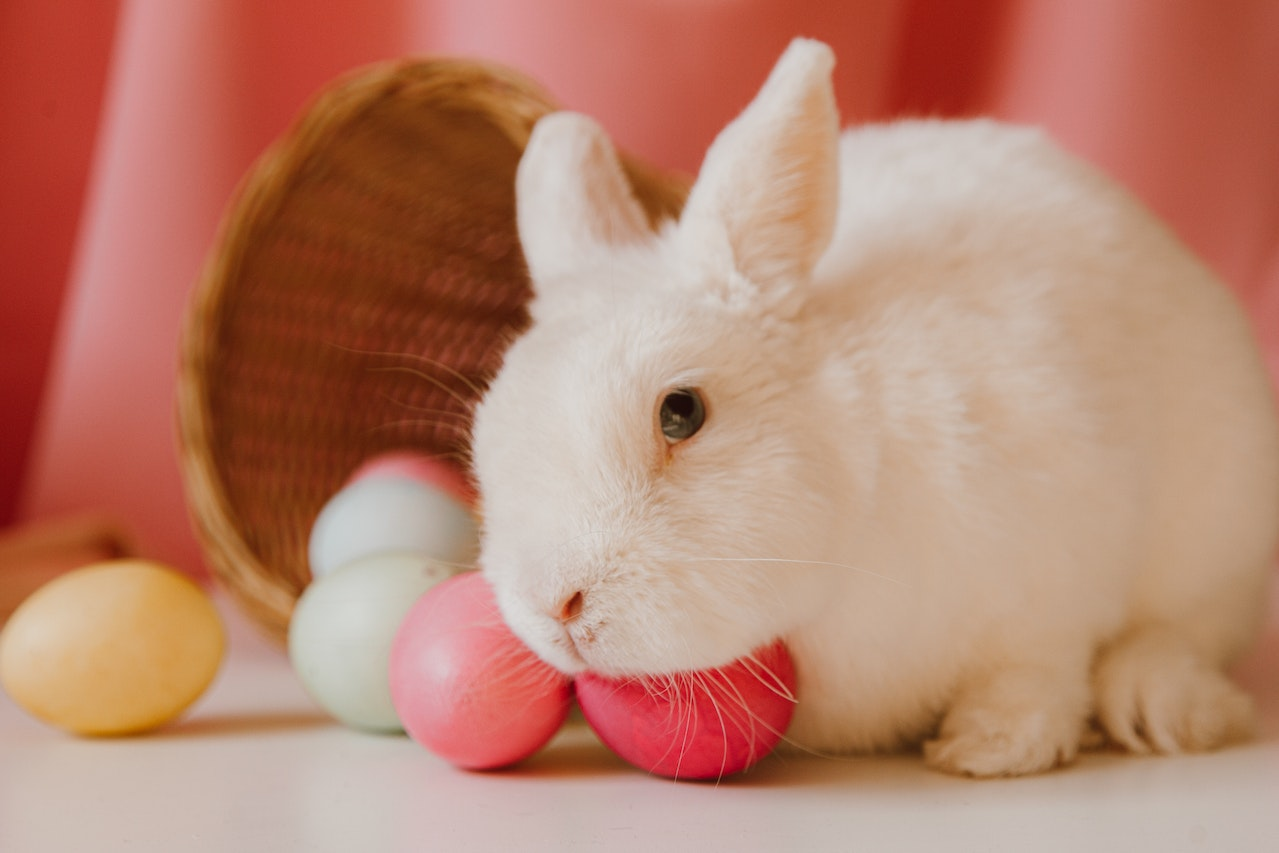
When searching for makeup, look for the Peta’s Bunny logo, an international symbol for cruelty free brands with no animal testing. At Aurora, we make your shopping easier by marking our cosmetics with the cruelty free check box.
The vegan makeup market worth was 16.6 billion in 2021 US dollars and could reach 28.5 billion US dollars by 2031, expanding 5.9% between 2022 and 2031. This shows that soon cruelty free makeup will be easily available in drugstores and cosmetics.
Vegan or Animal Cosmetics?
Animal-derived and vegan products have pros and cons. Choosing the right option depends on your needs and preference, is important. Vegan makeup is the way to go if you’re looking for gentle cosmetics on the environment that don’t involve animal testing.
At Aurora Global Brands, we aim to manufacture eco-friendly makeup products to give you excellent results and keep your customers coming
Stay Connected
Choose your favourite social media channel to stay up to date with Aurora Global Brands and its activities

